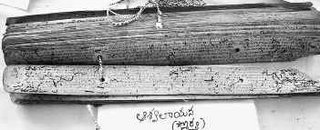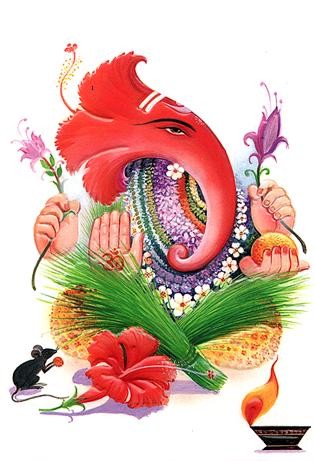Survey reveals rich heritage of Telugu
 ANCIENT TREASURE: A rare collection of manuscripts in Telugu recovered from Rajahmundry
ANCIENT TREASURE: A rare collection of manuscripts in Telugu recovered from RajahmundryHYDERABAD: In a survey conducted last February under the National Manuscripts Mission, the Government recovered 262,439 ancient and recent manuscripts written on palm leaves, copper plates and hand-made paper.
A majority of them are in Telugu script and are 300 to 400 years old, indicating the rich heritage of the language. Some are in Persian, Arabic, Hindi and Urdu. The manuscripts, passed on from generation to generation, have been secured from individual families who preserved them all these years and responded to the notice issued by the Government as part of the mission.
Two books in leaves -- భీష్మ పర్వం (Bhisma Parvam) of తిక్కన్న భారతం (Tikkana Bharatam) and పోతన భగవతం (Pothana Bhagavatham) -- found with two families in Nellore and Warangal, and a `parmana' issued by Chatrapathi Shivaji turned out to be major attractions. The families had kept them in mandirs in the house and worshipped them for years. Enumerators found that some families, unable to preserve such treasures, reluctantly immersed them in tanks.
Among the rare finds are styluses used for engraving letters on the leaf and scrolls.
Other important finds include a manuscript in Devanagari script from Kandakurthi in Nizamabad district, 60 pieces from Hindupur, Dwipada and Gond Bharatam in Gond script from Gumjala in Adilabad distict.
Nizamabad topped the districts with 73,056 manuscripts and Chittoor ranked second with 69,580.
Displaying some of the manuscripts at a press conference on Tuesday, Archaeology and Archives Minister N. Rajyalakshmi and Director of Oriental Manuscripts Library and Research Institute Jayadhir Tirumala Rao said some manuscripts could not be immediately acquired.
Another survey
So, another survey would be taken up shortly to know the willingness of the families to part with these pieces of `immeasurable value' to the State's history.
An ambitious plan has been drawn up by the institute to preserve the finds for posterity through digitisation and other means after ascertaining their antiquity.
Courtesy: The Hindu



0 Comments:
Post a Comment
<< Home